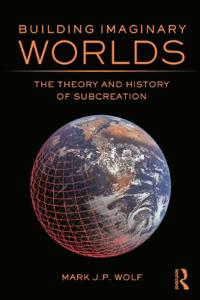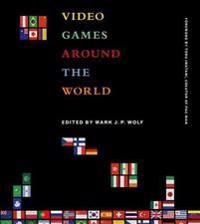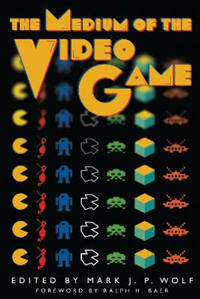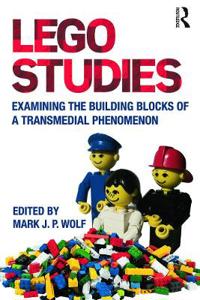Building Imaginary Worlds (Inbunden)
avMark J. P. Wolf
ISBN: 9780415631198 - UTGIVEN: 2012-12Mark J.P. Wolf's study of imaginary worlds theorizes world-building within and across media, including literature, comics, film, radio, television, board games, video games, the Internet, and more. Building Imaginary Worlds departs from prior approaches to imaginary worlds that focused mainly on nar[...]
Building Imaginary Worlds (Häftad)
avMark J. P. Wolf
ISBN: 9780415631204 - UTGIVEN: 201212Mark J.P. Wolf's study of imaginary worlds theorizes world-building within and across media, including literature, comics, film, radio, television, board games, video games, the Internet, and more. Building Imaginary Worlds departs from prior approaches to imaginary worlds that focused mainly on nar[...]
Video Games Around the World (Pocket)
avMark J. P. (EDT) Wolf, Toru (FRW) Iwatani, Mark J. P. (EDT) Wolf
ISBN: 9780262527163 - UTGIVEN: 2015-05Video games have become a global industry, and their history spans dozens of national industries where foreign imports compete with domestic productions, legitimate industry contends with piracy, and national identity faces the global marketplace. This volume describes video game history and culture[...]
The Medium of the Video Game (Pocket)
avMark J. P. (EDT) Wolf
ISBN: 9780292791503 - UTGIVEN: 2002-04Over a mere three decades, the video game has become the entertainment medium of choice for millions of people, who now spend more time in the interactive virtual world of games than they do in watching movies or even television. The release of new games or game-playing equipment, such as the PlaySt[...]
Lego Studies (Pocket)
avMark J. P. (EDT) Wolf
ISBN: 9780415722919 - UTGIVEN: 2014-11Since the "Automatic Binding Bricks" that LEGO produced in 1949, and the LEGO "System of Play" that began with the release of Town Plan No. 1 (1955), LEGO bricks have gone on to become a global phenomenon, and the favorite building toy of children, as well as many an AFOL (Adult Fan of LEGO). LEGO h[...]







